Ever freeze up when you need to ask for help, like the words are stuck in your throat? Last week, I was drowning in work emails and needed a coworker to take a quick look at a draft. I typed out, “Hey, can you help me with this?” but before I hit send, I added, “Sorry, I hate to bother you.” It wasn’t even a big ask, but I felt like I was imposing just by existing. Sound familiar? That’s the strange guilt of having needs, and it’s something so many of us wrestle with. 😓

This article’s gonna dive into why we feel like we’re “too much” just for needing support, how that guilt messes with our lives, and practical ways to start asking for what you need without apologizing for being human. We’ll explore the roots of this guilt, the toll it takes, and how to break free with small, doable steps.
For more on setting boundaries without feeling bad, check out our post on Setting Digital Boundaries Without Guilt. And if you’re curious about the science, Psychology Today has a great piece on why asking for help is so hard. Oh, and keep an eye out for a cool infographic to spot when guilt’s sneaking into your requests. Ready to stop saying sorry for needing stuff? Let’s get into it!

Quick Boundaries Quiz to Check Yourself
Not sure if your boundaries are helping or hurting?
Take the quick quiz to see where you stand
Just in 3 Min
Part of the Emotional Boundaries series
Why Having Needs Feels Like a Crime
Why does asking for help feel like you’re committing a felony? For a lot of us, it’s not just a random vibe it’s wired into us from way back. Maybe you grew up in a house where you were told to “stop being needy” or to always put others first. Maybe you got the message that asking for help meant you were weak or a burden. That stuff sticks.
PsychCentral says this guilt often comes from early experiences where expressing needs led to rejection, criticism, or even punishment. If you were raised to prioritize everyone else your parents, siblings, or friends your nervous system might’ve learned that having needs equals danger. It’s like your brain’s saying, “Don’t ask, or you’ll get hurt.”
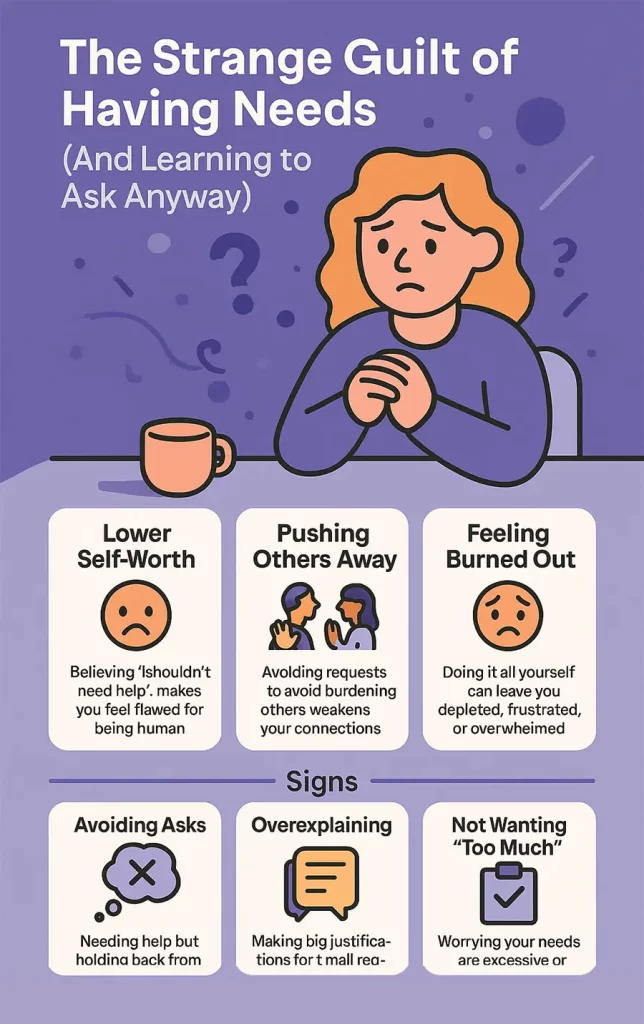
For me, it goes back to childhood. I remember wanting to ask my mom for help with homework, but she was always so stressed from work. I’d start with, “Sorry, I know you’re busy, but…” I was maybe 10, and I already felt like my needs were too much. Over time, I got so good at pre-apologizing that I’d say sorry before I even asked for anything. It wasn’t because I was weak it was my brain trying to keep me safe.
This guilt can also come from cultural or societal messages. In some cultures, self-reliance is king, and asking for help is seen as a failure. Or maybe you’ve been burned before asked for support and got shut down, so now you avoid it like the plague. Whatever the reason, this guilt isn’t your fault, but it is something you can work through. 😊
The Hidden Cost of Suppressing Your Needs
So, what happens when you keep your needs bottled up? Spoiler: it’s not pretty. Suppressing what you need doesn’t make you a saint it makes you stressed, resentful, and disconnected. Here’s how it plays out:

- Mental Health Takes a Hit: Holding back your needs can ramp up anxiety and depression. A 2018 study in the Journal of Social and Personal Relationships found that people who suppress their needs report higher stress and lower life satisfaction. It’s like carrying a backpack full of rocks you’re weighed down, even if you don’t realize it.
- Relationships Suffer: When you don’t express your needs, you might start resenting the people around you, even if they’ve done nothing wrong. I used to get so mad at my roommate for not helping with chores, but I never asked her to pitch in. I just expected her to read my mind. Guess how that went?
- Burnout Creeps In: Constantly putting others first leaves you running on empty. You’re so busy being “selfless” that you forget to recharge. I hit this wall last year when I was juggling work, friends, and family without ever asking for a break. I ended up snapping at everyone and crying over spilled coffee. Not my finest moment. 😅
- Self-Worth Tanks: When you act like your needs don’t matter, you start believing it. Over time, this erodes your confidence and makes you feel like you’re not worth supporting.
- Physical Health Pays a Price: Chronic stress from suppressing needs can mess with your body. Bradley University says poor mental health can increase your risk of heart disease by 67%. That’s no joke.
I Needed Help. I Apologized Instead.
I saw this play out with a friend, Sarah. She was always the “strong one” in her family, never asking for help, even when she was drowning in work and parenting. She’d say, “I don’t wanna burden anyone.” But over time, she got so resentful that she stopped talking to her siblings for months. Suppressing her needs didn’t make her stronger it broke her down.
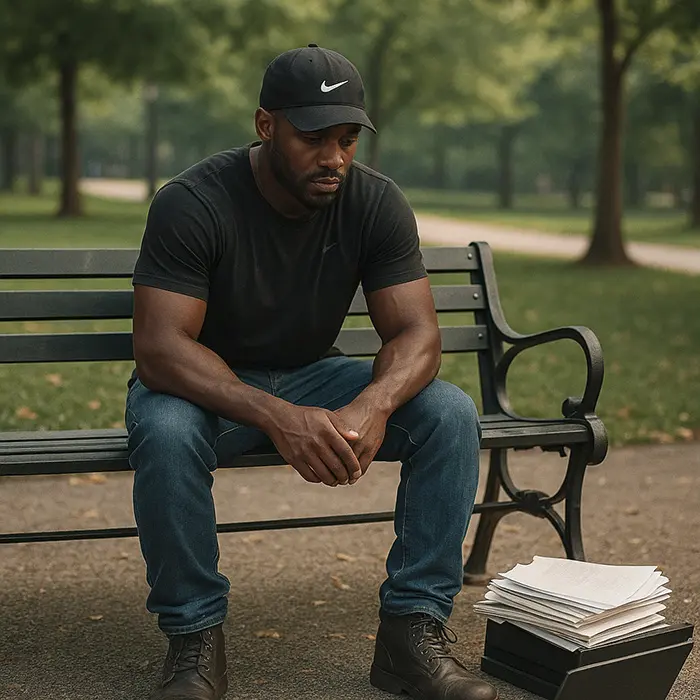
How to Ask Without Apologizing for Existing
Okay, so how do you start asking for what you need without feeling like you’re begging for scraps? It’s not easy at first, but it’s totally doable. Here are some practical steps to get you there, with real examples to show how it works:
1. Start with Low-Stakes Asks
Begin with small, safe requests from people you trust. Maybe ask a friend to grab coffee with you or a coworker to explain a tricky task. These low-stakes asks build confidence without feeling like a big deal.
I tried this with my best friend, Mia. Said needed help moving a heavy box, I nervous to ask. Finally said, “Hey, can you give me a hand with this box real quick?” She was like, “Duh, of course!” No judgment, no drama. It was a tiny win, but it felt huge.
2. Ditch the Apology Language
Instead of starting with “Sorry to bother you,” try neutral phrases like, “Is now a good time?” or “Can we chat about something?” It’s a small shift, but it signals that your needs are valid, not a burden.
I used to say sorry every time I asked my boss for feedback. Now, I go with, “Hey, do you have a sec to look at this?” It’s way less awkward, and I don’t feel like I’m groveling.

3. Remind Yourself: Needs Are Human
Your brain might tell you that needing help makes you weak, but that’s a lie. Everyone has needs it’s what makes us human. Try repeating, “My needs don’t make me less; they make me real.”
I started writing this on a sticky note by my desk: “I’m allowed to need stuff.” Sounds cheesy, but it helps when I’m spiraling into guilt.
4. Journal Your Wins
Keep a notebook and jot down every time you ask for something and it goes okay. Notice how people often want to help. This builds proof that asking isn’t as scary as your brain thinks.
After I asked Mia for help with that box, I wrote it down: “Asked Mia to help move a box. She was happy to help, and we laughed about it.” Seeing those wins on paper made me braver for the next ask.
5. Expect Some Discomfort
Asking for help might feel weird at first, especially if you’re used to suppressing your needs. That’s okay it’s like working out a new muscle. The discomfort gets lighter with practice.
The first time I asked my partner to take over dinner so I could rest, I felt so guilty. But he was like, “No problem, I got this.” Over time, asking got easier, and now it feels normal.
6. Practice Self-Compassion
Be kind to yourself when you feel guilty. Try talking to yourself like you’d talk to a friend: “Hey, it’s okay to need help. You’re doing great.” [Greater Good]([invalid url, do not cite]) says self-compassion can reduce anxiety by helping you accept your imperfections.
I started doing this when I felt bad for asking my mom to watch my dog. Instead of beating myself up, I said, “You’re allowed to need a break.” It’s like giving your brain a hug.

7. Use “I” Statements
When asking for help, frame it around your needs, not someone else’s obligations. Instead of, “You never help with this,” try, “I’m feeling overwhelmed and could use some support.” It’s clear, direct, and less likely to put people on the defensive.
I used this with my roommate: “I’m swamped this week can you handle dishes tonight?” She was way more receptive than when I’d hint or complain.
8. Start Saying No
Sometimes, the guilt of having needs comes from always saying yes to others. Practice saying no to things that drain you, so you have energy to focus on your own needs. Check out our post on Self-Care in Relationships for more on this.
I used to say yes to every social plan, even when I was exhausted. Now, I say, “I’m gonna pass, but let’s catch up soon.” It’s freed up so much mental space.
These steps aren’t a quick fix, but they’re a start. Pick one or two and give ‘em a try. You’ll be surprised how much lighter you feel. 😊
Building Emotional Safety for Your Needs
Asking for help is way easier when you feel safe doing it. Emotional safety means knowing your needs won’t be met with judgment, rejection, or resentment. Here’s how to build that safety net:
- Choose Your People Wisely: Ask for help from folks who’ve shown they’re supportive friends who listen, family who show up, or coworkers who don’t make you feel small. I stick to asking my best friend or my sister for help because I know they’ve got my back.
- Communicate Clearly: Be direct about what you need and why. Instead of vague hints, say, “I’m feeling overwhelmed and could use a hand with this project.” Clear communication sets everyone up for success.
- Look for Reciprocity: Healthy relationships are about give-and-take. If you’re always helping others but never asking, it’s unbalanced. Notice if the people you ask are also willing to lean on you it’s a sign of trust.
- Create a Safe Space: Surround yourself with environments that feel calming, like a cozy corner of your home or a quiet café. I have a little nook with a soft blanket where I journal my needs it makes asking feel less scary.
- Practice Vulnerability: Start small, but let yourself be seen. Share a small need, like, “I’m feeling off today can we talk?” Vulnerability builds trust, and trust makes asking easier.
I learned this when I started opening up to my partner about needing alone time. At first, I was scared he’d take it personally, but he was like, “I get it, take all the time you need.” That safety made it easier to ask for other things too.
Other articles that will definitely help you
- Setting Digital Boundaries Without Guilt
- Emotional Self-Care: Why You Need It
- Overthinking at Night: How to Stop
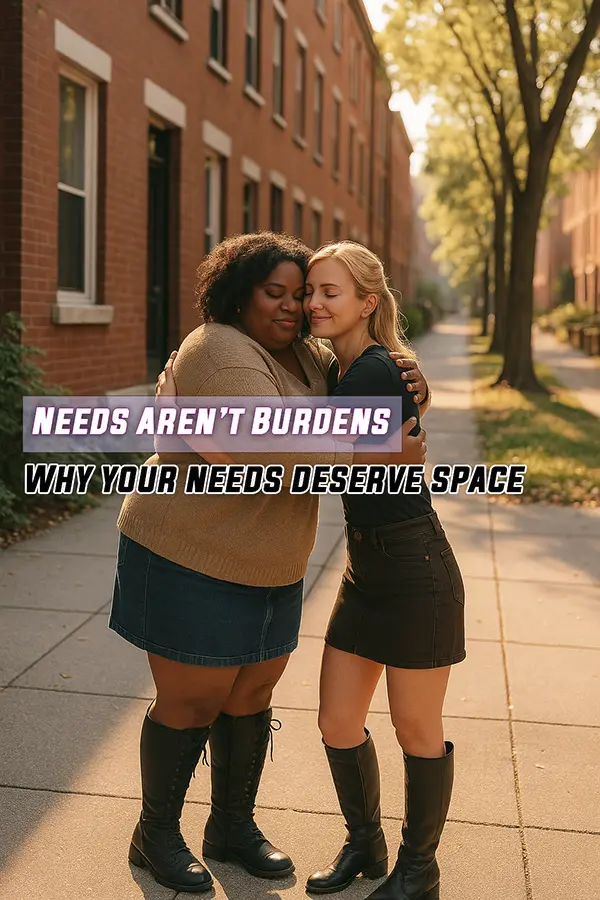
Overcoming the Guilt for the LGBTQ+ Community
For folks in the LGBTQ+ community, the guilt of having needs can feel extra heavy. Navigating societal pressures, family dynamics, or identity struggles can make asking for help feel like exposing a vulnerability in a world that’s not always kind. A friend of mine who’s queer said they used to avoid asking for support at work, worried it’d make them seem “weak” or draw attention to their identity.
Practicing self-compassion and finding affirming spaces can help. Joining queer-friendly support groups or online communities, like those on The Trevor Project, can create a safe space to express needs without fear. My friend started sharing their struggles in a queer book club, and it was like a weight lifted they realized others felt the same way. If you’re part of the LGBTQ+ community, seek out people and places that celebrate you, not judge you. It’s like finding a home for your heart. 😊

The Science Behind the Guilt
Let’s get nerdy for a sec. That guilt you feel when asking for help? It’s not just you it’s your brain doing its thing. When you were a kid, if asking for help led to rejection or criticism, your brain’s amygdala the fear center learned to associate needs with danger. Now, when you go to ask for something, your nervous system kicks into fight-or-flight, releasing cortisol and making you feel anxious.
This is tied to attachment theory, which says our early relationships shape how we view needs. If you had a caregiver who dismissed your needs, you might’ve developed an avoidant or anxious attachment style, making it hard to ask for help without guilt. Verywell Mind explains that this wiring can stick into adulthood, but it’s not permanent.
Self-compassion can rewire this response. A 2017 study in Personality and Social Psychology Bulletin found that self-compassion practices, like positive self-talk, reduced anxiety by calming the amygdala. It’s like teaching your brain that asking for help is safe.
Here’s a quick look at the science:
| Impact | Statistic | Source |
|---|---|---|
| Anxiety Reduction | 30% decrease with self-compassion | Personality and Social Psychology Bulletin: A reputable peer-reviewed journal publishing cutting-edge research on personality, relationships, and social influence |
| Heart Disease Risk | 67% increase with poor mental health | Journal of Social and Personal Relationships: An interdisciplinary, peer-reviewed journal focused on high-quality research into personal and relational dynamics |
| Relationship Satisfaction | Lower when suppressing needs | Bradley University Counseling Center: Provides short-term mental health counseling services to support student well-being, coping, and academic success |
Your brain’s just trying to protect you, but you can teach it that needs aren’t a threat

How to Start Asking for What You Need
- Start Small: Ask a trusted friend for a tiny favor, like helping with a quick task.
- Change Your Words: Swap “Sorry to bother you” for “Is now a good time?”
- Affirm Yourself: Write down, “My needs are valid,” and read it daily.
- Journal Wins: Note every time you ask for help and it goes well.
- Practice Self-Compassion: Talk to yourself like a friend: “It’s okay to need this.”
- Set Boundaries: Say no to things that drain you, so you have energy to ask.
- Seek Support: If guilt’s overwhelming, talk to a therapist for extra tools.

Conclusion
You don’t have to apologize for having needs they’re what make you human. That strange guilt you feel? It’s just old wiring, not the truth. By starting small, changing how you talk, and practicing self-compassion, you can ask for what you need without feeling like a burden. You deserve to take up space, to be supported, to be you.
So, tonight, try one thing. Ask a friend for a small favor or write down one need you’ve been holding back. You’re not too much you’re just enough. And the people who love you? They wanna help. Give ‘em a chance. 😊
Citations:
- Psychology Today: Explores how guilt, fear of burdening others, and vulnerability make seeking help emotionally painful even though most people actually want to help.
- PsychCentral: “Meeting Your Needs Is the Key to Happiness”: Highlights how people especially codependents often lose touch with their own needs while focusing on meeting others’, undermining emotional fulfillment and help-seeking.
- Verywell Mind: “What Is Attachment Theory?”: A clear summary of how early caregiver bonds shape emotional needs and boundaries into adulthood.
Don’t miss related articles:
FAQ
Your brain’s reacting to old wiring, not the current situation. Maybe you learned as a kid that asking was risky. Keep practicing small asks, and that guilt will fade with time.
If someone’s annoyed by a reasonable request, that’s about them, not you. Healthy relationships welcome give-and-take. If they’re resentful, it might be a sign to rethink that connection.
Not forever! The more you practice asking without guilt, the more your brain learns it’s safe. It’s like building a muscle it gets stronger with use.
Ask yourself, “Would I be okay helping with this if the roles were reversed?” If it’s respectful and not demanding, it’s probably fine.
That’s okay! A no doesn’t mean you’re a burden it means they have their own limits. Thank them and move on to someone else or find another way.
Remind yourself that everyone has needs, and asking builds stronger relationships. Try journaling about times people helped you happily it’s proof you’re not too much.
✨ Last updated on 10.08.2025
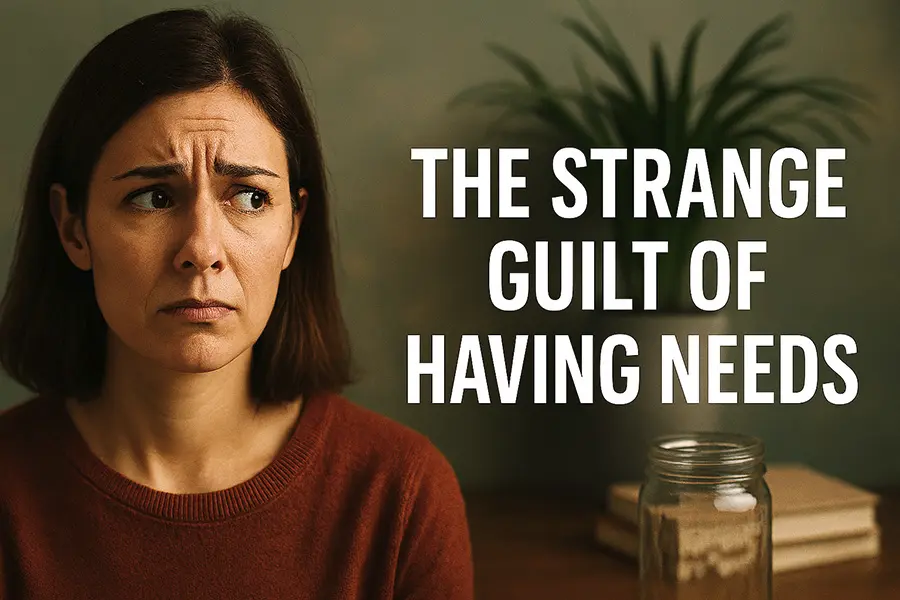


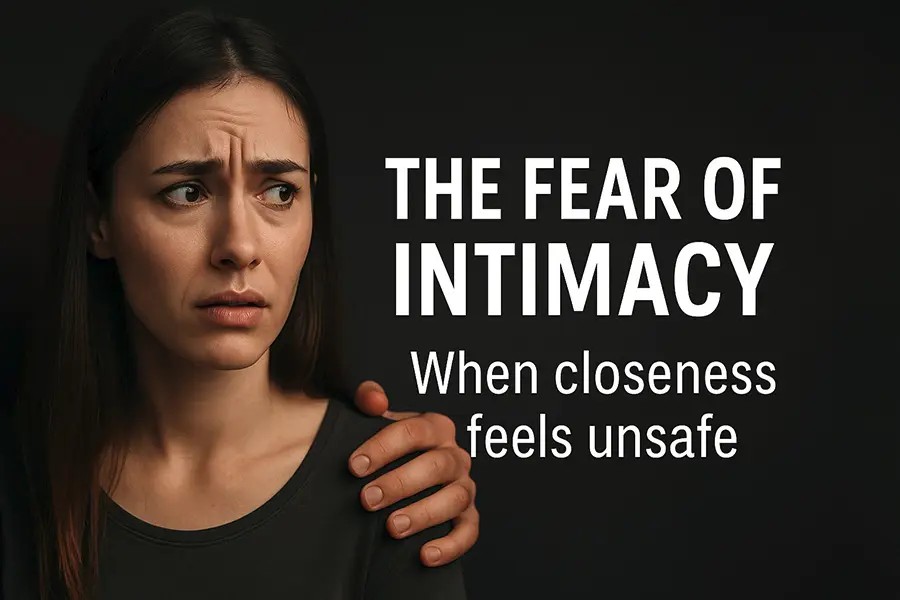
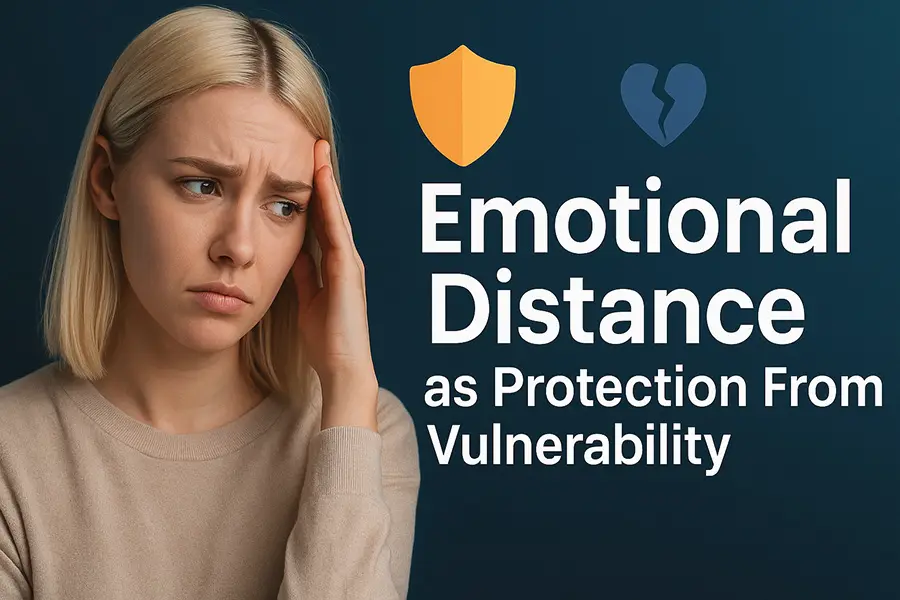
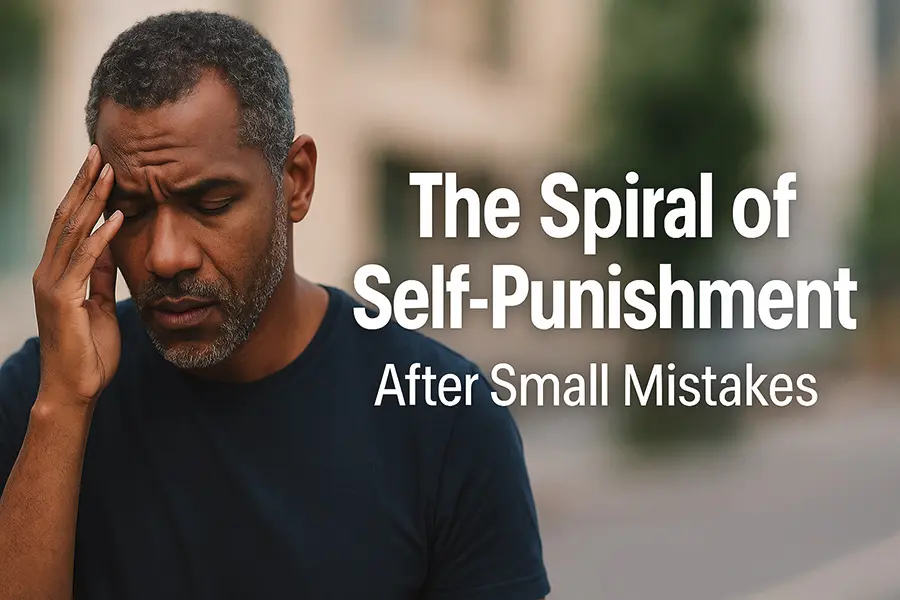










Leave a Reply